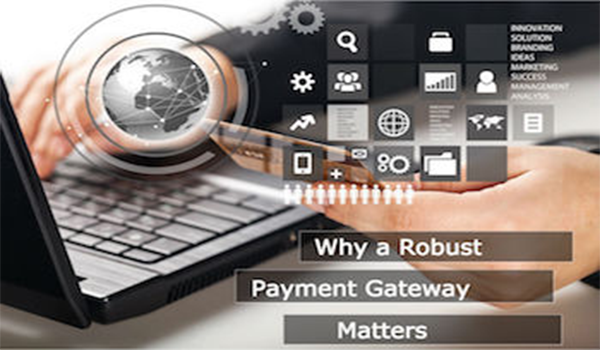
When you consider choosing a payment gateway for online business, don’t forget to consider the possibility that an international payment gateway might be your best choice.
Many considerations should inform the decision, and help you select specific features to support your ecommerce business. Attendant benefits make the right features valuable.
Online merchants need robust payment gateways to facilitate ecommerce business — today and tomorrow. Before we dive into the details, let’s agree on a few definitions:
- Payment gateways facilitate credit card transactions. They transfer key information between payment portals like web-enabled mobile devices, websites, and the front-end processor.
- The payment gateway may be provided by a bank to its customers, but can be provided as a separate service by a specialized financial service provider (such as a payment processor).
- Payment gateways are vital to the ecommerce transaction process — they authorize the payment between merchant and customer.
In the ecommerce world, payment gateways are analogous to point-of-sale terminals found in retail stores. In other words, the payment gateway is the technology that ensures the secure transfer of sensitive payment information in the online arena.
With basics defined, let’s review the capabilities merchants should consider when choosing a payment gateway. You may find that an international payment gateway is what your business needs.
Start With Hygiene Factors
Without basic security and brand acceptance capabilities, there can’t be a viable online business. These basics are called “hygiene factors” in business jargon. Look for them when choosing a gateway.
Payment gateway security “must haves” includes Payment Card Industry Data Security Standard (PCI-DSS) Level 1 compliance. Today’s sophisticated online shoppers will do business only with trustworthy merchants.
Consider too the fraud protection and screening tools payment gateway providers offer. Examples include AVS and IP Address verification tools. These tools help protect merchants from fraudulent transactions by ensuring the location of the person using a payment card online matches the address location of the actual cardholder.
Another must-have is major card brand acceptance. Ensure that your chosen gateway accepts the major U.S. card brands (Visa, Mastercard, American Express, Discover) at a minimum.
If your customer base extends further afield — or if you’d like the flexibility to expand internationally later — you should also include the local card brands common in other countries.
Shoppers are simply more comfortable using their usual payment cards. They also prefer transactions quoted in their local currencies so choose an international payment gateway with multi-currency capabilities.
Add on Business Model Flexibility Support
The business model you start with today may be enough to carry you to the success you desire. But why limit the future? Choosing the right international payment gateway can set up the flexibility to take your online business in different directions tomorrow.
Two possibilities include expanding to new countries with the ability to process international and multi-currency transactions — ideally with a multi-language interface — and the opportunity to create a subscription service utilizing pre-authorized recurring payments.
The gateway would need to store customers’ card numbers and charge them for services according to the schedule you define.
Be sure to check for any additional fees related to international processing, and determine whether you’ll need a different merchant account to process transactions in specific countries.
The right international payment gateway could be your gateway to tremendous growth and exciting new opportunities.
Time Is Money — How Much Are You Willing to Pay?
Cost factors should be considered when choosing an online payment gateway, and so must the timeframe for required integration between your website and the payment gateway.
How much are you willing to spend? Inevitably, there will be some integration required between your merchant website and the payment gateway. With a good web API, the time and investment required should be minimal. But does the gateway provider charge for set up?
Be sure you’re aware of fee structures. Think fully loaded costs: set-up costs + transaction costs + administrative costs. And don’t overlook potential extra fees that may arise, like chargeback fees.
How long will it take to set up? The sooner integration with your chosen international payment gateway occurs, the faster you can successfully complete your first sales transaction.
And what about the promised funding timeframe? With an individual merchant account and the right international payment gateway, funding should occur within twenty-four to forty-eight hours of transaction clearing and settlement (barring suspicious activity).
Some Final Considerations
When choosing an online international payment gateway, you might want to look at — and even test — the level of support offered. Consider support methods (telephone, email, website chat, in-person) and hours. Check online customer reviews, and test responsiveness by calling the vendor to assess the experience.
Choose an international payment gateway that offers advanced management features to improve your business operations; and complete fraud prevention and administrative tools for enhanced business protection.
Don’t stunt the growth of your business by choosing the wrong payment gateway. The right international payment gateway will provide the flexibility you need for ecommerce success now and in the future.
